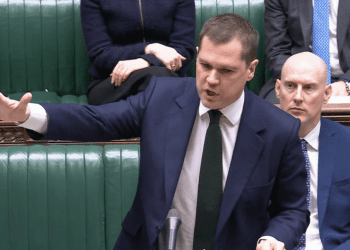The Runcorn and Helsby by-election will be seen as the moment Nigel Farage first made good on his totemic warning, issued at the commencement of his parliamentary career: “We’re coming for Labour”, the Reform leader declared at his Clacton count last July, “be in no doubt about that.”
Who would doubt it now?
Insurgent political forces — upstart outfits beyond the mainstream of British politics — can only subsist on opportunism and suspenseful theatrics for so long. In winning the Runcorn by-election, Reform has established an electoral credibility that evaded its Faragist forebears. UKIP’s by-election triumphs followed Conservative defections. In Runcorn, after years of unfulfilled prophesies, Farage finally ravaged Labour in a direct, head-to-head contest.
Six votes separated the Labour candidate and Reform’s newest MP. Those votes, the difference between Reform conquest and defeat, have shaped the tenor of analysis in recent days. But the symbolism of Farage’s triumph matters; the narrative of his insurgency will not be easily unravelled. Psychologically, Reform’s success could prove self-reinforcing.
Besides, the data is brutal. Labour’s 14,696 majority in Runcorn, secured just ten months ago, evaporated. More than 250 Labour MPs would lose their seats if the 17.4 per cent swing to Reform was replicated across the country. If Farage can do it in Labour’s 49th safest seat, MPs will fear, he can do it just about anywhere.
There exists a certain genre of by-election — Orpington, 1962; Hamilton, 1967; Crosby, 1981; Chesham and Amersham, 2021 — that signals the eve, at least, of a political reconstitution. Some new dawns are more ephemeral than others; and posterity will decide if Runcorn, 2025, truly belongs on the list. In our immediate context however, the logic of Reform’s victory is inescapable.
***This content first appeared in Politics.co.uk’s Week-in-Review newsletter, sign up for free and never miss this article.***
Indeed, Runcorn is significant in and of itself — but seismic because of Farage’s advances elsewhere.
Across the electoral map, Reform gained 677 councillors, won 10 councils and secured two mayoralties (Greater Lincolnshire and Hull and East Yorkshire). The party came within 400 votes of winning the North Tyneside mayoral contest, and ran Labour close in Doncaster and the West of England. In county Durham, Labour shed a staggering 38 seats; Reform took overall control with 65 councillors as the incumbent party finished fourth. Doncaster may have a Labour mayor (elected with 32.6 per cent of the vote), but the council is now under Reform control after the party won 37 seats. Labour secured 12 (down 28).
Reform has converted momentum into gains on the ground. Farage came for Labour and, in this battle at least, emerged as conquerer.
The Reform leader’s strategic judgement this parliament — to prioritise professionalisation, oust Rupert Lowe (controversial in the online spaces Farage frequents), and back his party chairman, Zia Yusuf — has been vindicated. Reform, which consistently underperformed in such elections last parliament, now has a formidable campaign machine. The new Reform MP, Sarah Pochin, proves a model for future Reform success. Lowe’s online agitations represented a political dead end.
The government’s gloom this weekend is therefore explicable, and the debate over how to recover will dominate Labour politics in the coming months.
The concerns of critical MPs have been reinforced. But so too, according to recent anonymous briefings, has No 10’s resolve. The Labour leadership plans to stay the course, sprinting “further and faster” in pursuit of change. So runs the official line. The natural retort notes that voters did not necessarily pass judgement on the speed of government Thursday — but its direction.
Still, things could be worse for Labour. Consider for instance: the Conservative Party.
Reform ripped like a teal typhoon through once reliable Tory shires, uprooting councils and gutting local Conservative parties.
Kemi Badenoch’s party lost control of every council it went into the election defending. The BBC’s projected national vote share placed the Conservatives in fourth place with 15 per cent, behind Reform (30 per cent), Labour (20 per cent) and the Lib Dems (17 per cent).
That is extinction-level territory.
In Kent, the party won just 5 council seats (down 57), while Reform won 57 councillors (up 57). In 2021, the Conservatives under Boris Johnson’s leadership won 62 of the available 76 seats. Kent, that epitome of a Tory stronghold, has fallen to the Faragists. Nowhere is safe.
Elsewhere, Conservative councils were carved up by a deadly Reform-Liberal pincer manoeuvre. In Devon, the Liberal Democrats won 27 seats (up 18); at the same time, Reform UK won 18 seats (up 18). The Conservatives lost 32 councillors and were left languishing on 7 seats.
***This content first appeared in Politics.co.uk’s Week-in-Review newsletter, sign up for free and never miss this article.***
The bottom line? The Conservative Party is a political non-entity in areas where it once reigned supreme.
Badenoch then, elevated on 2 November as Tory leader, marked six months in office with an incontrovertible statement of how little progress she has made.
Badenoch broke her silence on Friday with an appearance alongside Paul Bristow, the newly elected Tory mayor for Cambridgeshire and Peterborough (victorious on 28.36 per cent of the vote). “The results across the country are pretty mixed”, she said. (“Mixed” in the sense the Tory vote split in all manner of directions, one must assume).
The Tory leader added: “We have a big job to do to rebuild trust with the public — that’s the job the Conservative Party has given me and I am going to make sure that we get ourselves back to the place where we are seen as the credible alternative to Labour.”
The phrase “credible alternative” warrants scrutiny.
The aforementioned dynamic, whereby an upstart party gains credibility by proving it can win, manifests antithetically for a party travelling in the opposition direction.
The merciless logic of First Past the Post (FPTP) has flipped on the Conservative Party. Reform won in Runcorn, in significant part, by overwhelming the Tories — a pattern repeated across England’s electoral landscape.
FPTP, once a rival combatant in Farage’s revolution, has defected. Reform has surpassed the threshold whereby the electoral system, in all its disproportional glory, begins to act as an ally. Politically, Farage will now be able to squeeze Conservative voters with the message once propagated (successfully) at his expense: “Only we can beat [insert party] here”.
Badenoch’s party is hurtling towards a crisis of credibility. The dynamics that harbour the potential to destroy the Tories are well developed. Their appeal is shrinking and, with it, the Conservatives’ viability as a political force.
After Runcorn and the contests beyond, the defining division in British politics is Reform vs Labour. For the Conservative Party, irrelevance beckons.
Josh Self is Editor of Politics.co.uk, follow him on Bluesky here.
Politics.co.uk is the UK’s leading digital-only political website. Subscribe to our daily newsletter for all the latest news and analysis.
The post Week-in-Review: Reform plots reckoning for Keir Starmer — and irrelevance for Badenoch appeared first on Politics.co.uk.
































